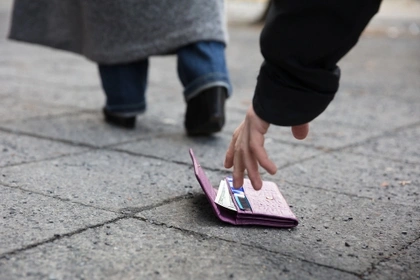How does Section 75 work?
-
Protection on credit card purchases between £100 and £30,000. Section 75 makes the credit card company jointly liable with the seller. This means if the seller fails to deliver what they promised, you can claim a refund directly from the credit card company.
-
Partial payments count, even if you only paid a deposit with your credit card and covered the rest by other means. You’re still protected for the entire purchase value as long as the item or service is over £100 and under £30,000.
-
It applies to services too. Section 75 isn’t just for physical goods. It also covers services, such as holidays or event tickets, giving you a wider safety net.
This protection is free and automatically comes with a credit card (but not a debit card). Be aware though, you may be charged interest on a credit card, so, it's worth weighing up your options before making any large purchases.
When can you use Section 75?
You can use Section 75 protection if:
-
The seller goes out of business before delivering the goods or services.
-
The product is faulty, or the service isn’t as described or performed.
-
You’ve been misled or mis-sold an item or service.
-
You don’t receive the item
How to make a claim under Section 75
Making a claim under Section 75 is straightforward:
1. First, try resolving the issue with the seller directly. Many companies are willing to fix problems without further action.
2. Contact your credit card provider if the seller is uncooperative or has gone out of business. Explain the situation and provide any supporting documents. You’ll need a covering letter detailing the nature of your claim and what you have done to try and resolve it. And a copy of your contract, terms and conditions and invoice.
3. Maintain a record of all your communications, as well as any evidence of the issue with your purchase. This will help strengthen your case if it escalates.
Can I use Section 75 for a holiday refund?
A Section 75 holiday refund allows you to claim back money from your credit card provider if something goes wrong with your holiday purchase. Under Section 75 of the Consumer Credit Act 1974, your credit card provider is equally liable with the holiday provider for breaches of contract or misrepresentation, provided:
-
The holiday cost between £100 and £30,000.
-
You paid for any part of the holiday with your credit card (even just the deposit).
You can make a Section 75 claim in cases such as:
-
The holiday company goes out of business.
-
The holiday is significantly not as described, e.g., a different hotel, no flights.
-
You didn’t receive the service you paid for, e.g., a cancelled holiday without a refund.
Is there a time limit on Section 75 claims?
Yes, there is a time limit for making a Section 75 claim. You must submit your claim within six years from the date of the breach of contract, or the date you first became aware of the problem. This time frame applies in England, Wales, and Northern Ireland. In Scotland, the time limit is five years.
While you have up to six years, it's best to file the claim as soon as possible after discovering the issue. This can make it easier to gather evidence and resolve the claim faster.
How long does a Section 75 claim take?
A Section 75 claim can take anywhere from a few weeks to several months, depending on the complexity of the case and the responsiveness of both the credit provider and the seller.
On average, it can take between 30 and 60 days for the credit provider to investigate and resolve the claim.
The process can be delayed if:
-
Additional evidence or documentation is needed.
-
The seller disputes the claim.
-
The claim involves large amounts or complex transactions.
If the credit provider refuses the claim, you can escalate it to the Financial Ombudsman Service (FOS), which may take additional time (typically a few months) to investigate and provide a decision.
How long does a credit card refund take?
Credit card refunds can take anywhere from 3 to 14 working days, depending on the retailer and your card provider. In most cases, the money is returned to your available credit within 5 to 7 business days, but it can take longer during busy periods or if the refund is delayed by the seller.
What happens when you get a refund on a credit card with zero balance?
If your credit card balance is at £0 and you receive a refund—either through Section 75 or from the seller directly—you won’t lose that money. The refund will be added as a positive balance (also called a credit) on your card, which you can use for future purchases or request to have transferred back to your bank account.
Can a Section 75 claim be reversed?
Yes, a Section 75 claim can be reversed under certain circumstances. If the credit provider initially accepts the claim and later discovers new information, such as:
-
Evidence that contradicts the original claim.
-
The seller successfully disputes the claim.
-
The claim is found to be fraudulent or ineligible.
In these cases, the credit provider may reverse their decision and request the repayment of any funds already reimbursed. However, you would be informed of the reversal and given an opportunity to challenge the decision or provide additional evidence to support your claim.
What Section 75 doesn’t cover
There are some exceptions to Section 75 protection:
Purchases below £100 and above £30,000 aren’t covered by Section 75. You might still have some refund rights, but they won’t be as comprehensive.
Third-party payment processors. If you used a third-party payment processor like PayPal, Stripe, or GoCardless, you may not be covered by Section 75. It’s always best to check with your provider.
Debit cards. Section 75 does not apply to debit cards. It only applies to credit cards. However, debit cards and some other payment methods may offer protection through different schemes like Chargeback, but these are not as robust as Section 75.
Does credit card purchase protection apply to purchases under £100?
Section 75 only covers purchases between £100 and £30,000, but what if your item costs less than £100? You may still have options for getting your money back—even though Section 75 won’t apply.
What additional forms of purchase protection are available?
If Section 75 isn’t suitable for your situation, there is another form of purchase protection that can be applied to both credit cards and debit cards:
Chargeback
Section 75 only covers transactions on your credit card between £100 and £30,000. If you have an issue with something that costs less than £100, you may be able to make a claim via your bank, using a scheme called ‘chargeback’.
Chargeback can be applied to credit card and debit card purchases. Unlike Section 75, lenders are not legally obligated to offer it. However, it is regarded as good practice to do so.
When you make a claim, your bank will get in touch with the seller’s bank to request a refund.
Bear in mind that you are not guaranteed to get your money back. Also, there can be some variation between how different banks and credit card providers handle chargeback. So, it’s best to check with your provider for the full details.
Ocean Credit Card
See if it's a YES before you apply
- Up to £8,000 credit limit
- Checking won't affect your credit score
- Get a response in 60 seconds
Intelligent Lending Ltd (credit broker). Capital One is the exclusive lender.

Disclaimer: We make every effort to ensure content is correct when published. Information on this website doesn't constitute financial advice, and we aren't responsible for the content of any external sites.






